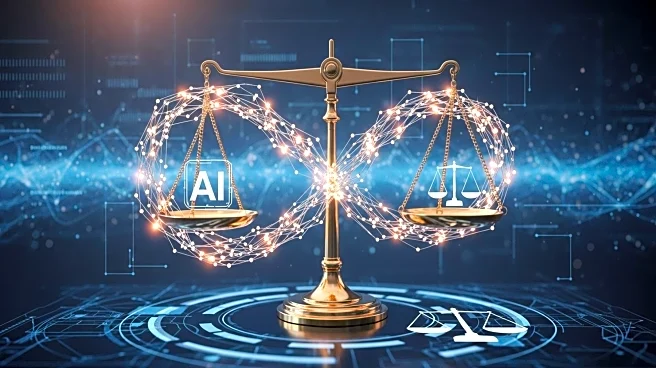What's Happening?
Anthropic, an AI company, has agreed to a $1.5 billion settlement in a copyright lawsuit involving 500,000 authors. The lawsuit accused Anthropic of illegally downloading and using authors' books to train its AI model, Claude. This settlement is the largest in U.S. history for a copyright case, with each affected author receiving $3,000. The lawsuit highlighted the impact on authors' ability to earn a living, as Anthropic's AI models generate texts that would otherwise be paid for. Judge William Alsup ruled that Anthropic can use copyrighted books legally obtained for AI training, but the settlement addresses the pirated books.
Why It's Important?
This settlement sets a precedent for copyright cases involving AI companies, highlighting the tension between AI development and intellectual property rights. Authors face challenges in protecting their work from unauthorized use, impacting their income and the commercial market for their creations. The case underscores the need for clear legal frameworks governing AI training data. While the settlement amount is significant, it represents a small fraction of Anthropic's overall value, raising questions about the adequacy of compensation for authors. The case may influence ongoing lawsuits against other AI companies, shaping future legal standards in the industry.
What's Next?
The settlement may prompt other AI companies to reconsider their use of copyrighted materials, potentially leading to more settlements or changes in business practices. Authors and copyright holders might push for stronger protections and clearer regulations to safeguard their work. The outcome could influence ongoing lawsuits against companies like Microsoft and OpenAI, as well as future legal battles. Stakeholders in the AI industry may need to address ethical and legal concerns regarding data usage, balancing innovation with respect for intellectual property rights.
Beyond the Headlines
The case raises ethical questions about the balance between technological advancement and the rights of creators. It highlights the need for ethical AI development practices that respect intellectual property and compensate creators fairly. The settlement may drive discussions on the long-term impact of AI on creative industries and the importance of establishing fair use standards. As AI continues to evolve, stakeholders must navigate complex legal and ethical landscapes to ensure responsible innovation.










